In Paris last December, the United Nations Framework Convention on Climate Change 21st Conference of Parties marked a pivotal moment in the journey towards a clean energy future, climate change mitigation, and international security. The Paris Agreement is a critical document marking an international commitment to collaborate in protecting our earth. Its targets for emissions reductions will be made real by the actions and advocacy of people of faith and conscience.
The U.S. helped lead the way toward the success of the Paris negotiations. Here, such clean energy initiatives as the Clean Power Plan (recently stayed by the Supreme Court in North Dakota v. Environmental Protection Agency) and federal regulations on methane releases are instrumental. We need to strengthen these concerted and unified efforts to reduce our national emissions, protect the safety of our children, build up clean energy industries, protect the poor and vulnerable from the ravages of climate change, and uphold the U.S. as an international leader.
For all these reasons, and with our long track record of supporting energy security and climate change mitigation, the Jewish Community must help ensure that the U.S. take serious and responsible measures to reduce our greenhouse gas emissions. In so doing, Jewish community advocacy should recognize the United States’ need to maintain relative energy security based on security, economic, and social concerns.
The Jewish Council for Public Affairs believes:
- Climate change is an overarching concern of today and tomorrow, which touches on all that we do – poverty, Israel, civil rights, and more. We must bring Dr. King’s “fierce urgency of now” to our efforts to reduce and ultimately reverse climate change.
- The Paris Agreement is a critical component of international cooperation on the global issue of climate change, and must be upheld to the utmost.
- States and localities should continue to plan and implement clean energy initiatives, even as ever-stronger federal efforts should advance.
- As the science becomes ever clearer, we must go beyond reaffirming our many previous statements about climate and environment, and intensify our collective efforts toward climate justice.
The community relations field should:
- Measure, reduce, and ultimately eliminate the emissions footprint of its own activities, infrastructure, and community events.
- Engage both within the Jewish community and across lines of faith, denomination, generation, race, and ethnic group to create broad coalitions on environmental issues, specifically around clean energy solutions; pursue these efforts at the local level, working with historic trusted partners like Interfaith Power and Light.
- Consider climate impacts in all the work we do—around Israel, national security, poverty reduction, securing civil rights for all, and more.
- Work with the Coalition on the Environment and Jewish Life, other Jewish groups committed to sustainability, and our broader coalition partners toward adoption of policies based on the following principles:
- Clean and renewable energy sources are critical for any strategy to mitigate climate change and promote international peace and security.
- The transition towards a clean energy future must be done justly, and requires resources and job training for those workers in transition from other energy industries.
- Climate change is a global issue that requires international cooperation, including U.S. leadership on ongoing large-scale international and direct bilateral climate change and environmental negotiations.
- During subsequent meetings of the Conferences of Parties to the United Nations Framework Convention on Climate Change, the U.S. should support the strengthening of the Paris Agreement, making it more ambitious and just over time with a clear preference to keep fossil fuels in the ground as technology and security, economic, and social circumstances allow.
